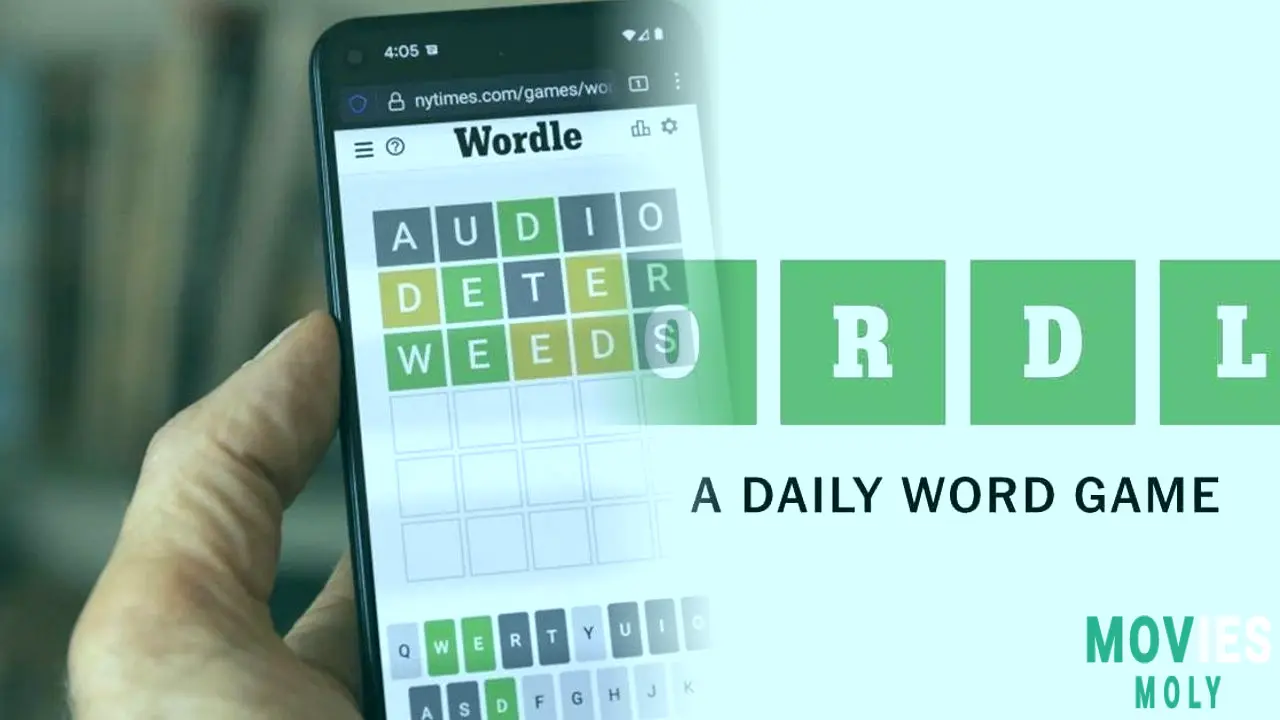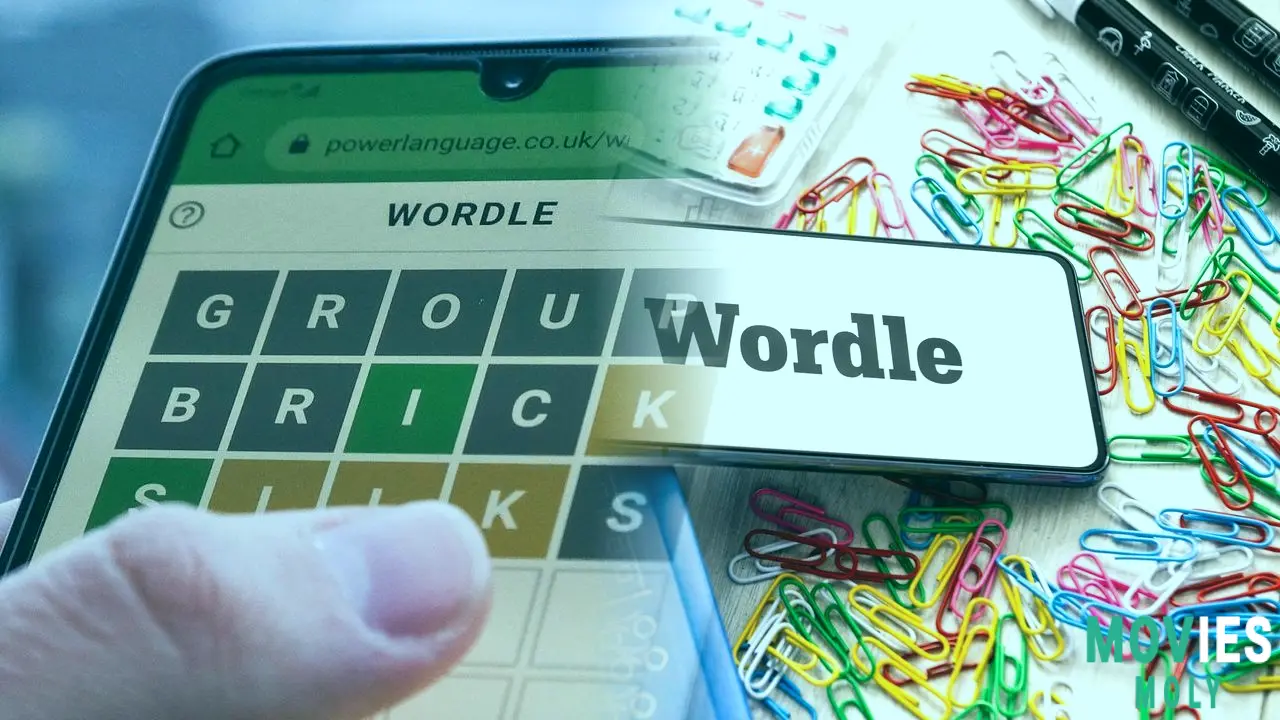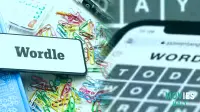If you are anything like me, your day probably is not quite complete until you have tackled the daily Wordle puzzle. It has become a small ritual for millions of people around the world. Every morning brings a new five-letter word, waiting to be guessed in just six tries. This simple game has captured our attention, sometimes for better and sometimes for worse, especially when the word turns out to be a real head-scratcher.
Wordle became wildly popular during the pandemic. It was created by developer Josh Wardle. Players quickly picked up the game. It spread like wildfire through social media. People shared their green, yellow, and black squares. Sometimes those squares showed off a quick win. Other times they showed pure frustration. The game offers a simple idea: guess a five-letter word. You get hints based on correct letters in the right spot or correct letters in the wrong spot. This simple idea has proven quite powerful, keeping us coming back day after day.
Today's puzzle sometimes feels like it asks you to bring your A-game if you want to keep your winning streak going. Many players often turn to social media to share their feelings when a word is particularly tricky. The frustration can be very real. It is not always about winning. Sometimes it is about just getting it done. I know the feeling of staring at those blank squares, hoping for inspiration to strike. It is a daily dose of brain-teasing that has become a part of our routine. Luckily, there are always tips and clues to help you get through the tough ones.
Unpacking The Daily Wordle Puzzle: Strategies For Solving Those Tricky WordsHow To Improve Your Chances Of Success And Keep Your Winning Streak Alive
When you are trying to solve the daily Wordle puzzle, a good starting word can make all the difference. Many players focus on words that use common letters like E, A, R, O, T, and L. You want to avoid less common letters like Z, J, and Q in your first guesses. Some people like to use words with three vowels, or words with a good mix of common consonants and multiple vowels. This helps you figure out which letters are in the word much faster. It is all about narrowing down the possibilities with each guess.
I find that if I get stuck, stepping away from the puzzle for a few minutes can sometimes help. It is not a race against time, so there is no need to rush. Treating it like a newspaper crossword can be a smart move. Sometimes just clearing your head lets you come back with a fresh perspective. That pause might be the difference between getting the win and ending up with a line of gray squares. No one wants to see that.
After your first guess, your next word should build on what you have learned. Use any green or yellow letters you found. Try to bring in new common letters that you missed the first time around. Make sure to avoid any letters you now know are not in the word. With a bit of luck, you will start seeing those colored squares fill up, guiding you closer to the answer. Remember, letters can repeat in a word, so keep that in mind as you make your guesses. For example, a word like "BOOKS" shows that double letters are fair game. This can sometimes throw me off if I forget to consider it.
The Humble Beginnings Of Wordle And Its Journey To The New York Times

From A Personal Project To A Global Phenomenon And Its Current Home
Wordle was originally dreamt up by software engineer Josh Wardle. He made it as a surprise for his partner who really loved word games. It started as a small, personal project. From there, it spread to his family. Then, it was released to the public. The game quickly found a huge following. It inspired many other similar games, focusing on music, math, or geography. It was not long before Wordle became so popular that The New York Times bought it for a lot of money. It is impressive how quickly a simple online game can become a household name.
When The New York Times took over, there were some changes. The game moved to their website. Some players worried that it would lose its charm or become harder to access. However, for the most part, the game has stayed the same. It still offers that familiar daily challenge. The Times has other popular puzzles too, like the Mini Crossword and Connections. Wordle has found a good home there, sitting alongside other brain teasers that millions enjoy daily.
I have often wondered if the game would ever change its format significantly. For now, it sticks to its core idea: one five-letter word, six guesses. This consistency is part of why it remains so appealing. You know what you are getting every day. It is a small moment of focus, a quick mental workout, that fits neatly into busy schedules. This simple approach has allowed it to stand out in a world full of complex online games.
Why Wordle Remains A Daily Obsession For So Many Players

The Simple Appeal And Community Connection That Keeps Us All Hooked
Part of Wordle's enduring charm is its simplicity. There are no complicated rules. You do not need special skills. Anyone can pick it up and play. This low barrier to entry makes it inviting to everyone. It is also a shared experience. People talk about their daily Wordle results with friends and family. They compare how many guesses it took them. They complain about difficult words. This common bond creates a sense of community. It is a small thing, but it connects us in a fun way.
The game also gives us a sense of accomplishment each day. Getting that green row, especially on a tough word, feels really good. It is a quick win that can set a positive tone for the rest of your day. Even when you lose, it is just one word. There is always tomorrow's puzzle waiting. This low-stakes format makes it less stressful than other games. You can try again tomorrow without feeling like you have lost something big.
I think the feeling of discovery also plays a big part. Each guess is a little experiment. You are trying to figure out a hidden secret. When a yellow letter turns green, it is a small victory. When you finally get the word, it feels like solving a riddle. This constant feedback loop keeps you engaged. It makes you want to try just one more guess. It is a satisfying process that never really gets old.
Looking Ahead: The Future Of Wordle And Its Place In Our Daily Lives
How This Popular Game Will Continue To Challenge And Entertain Us For Years To Come
It seems clear that Wordle is not going anywhere soon. Its popularity has not faded much since its initial boom. It has settled into a comfortable spot as a daily puzzle for millions. The New York Times has integrated it well into its puzzle lineup. It fits perfectly with their brand of smart, engaging games. I believe it will continue to be a go-to for a quick mental break. It is a fun way to start the day or take a short pause.
The community aspect is also a big reason for its staying power. People love to share their results, talk about the words, and give each other tips. This social connection keeps the game alive beyond just the puzzle itself. It is not just about competing against the game. It is about sharing an experience with others. This makes it more than just an app on your phone. It is a conversation starter.
So, whether you are a seasoned player with a long streak or someone who just started, Wordle offers something for everyone. It is a simple concept executed well, providing a consistent challenge and a little bit of daily joy. I know I will keep trying my best to get that word in three guesses, even when it feels impossible. After all, the satisfaction of seeing those green squares is always worth the effort.




